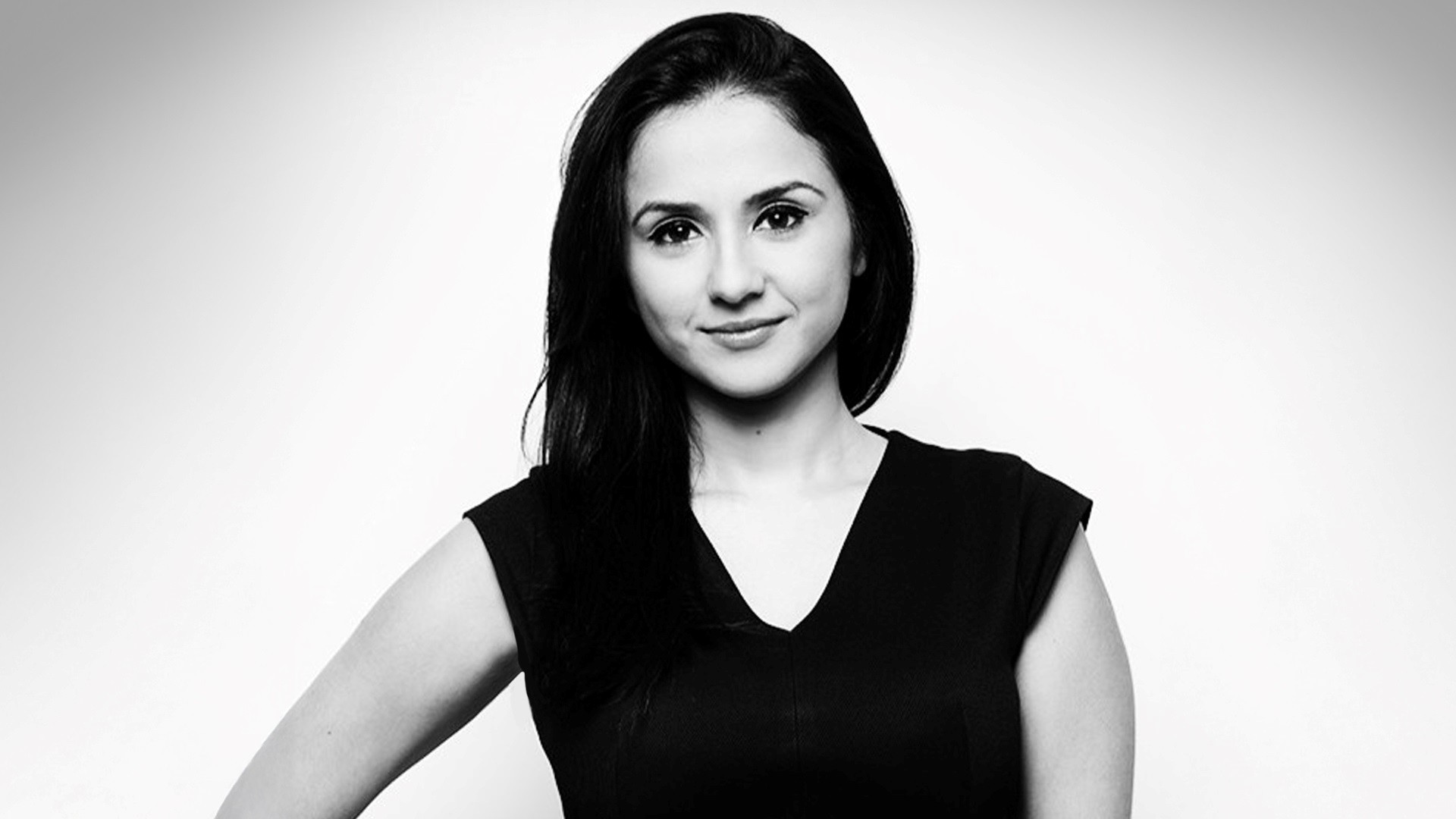Great Concordian: Rabia Khan, founder and CEO of Serna Bio
 “If you feel like you don’t fit the traditional path, trust your instincts and follow what excites you.”
“If you feel like you don’t fit the traditional path, trust your instincts and follow what excites you.”
Rabia Khan, GrCert 10, MBA 13, is on a mission to reshape the future of drug discovery. As the founder and CEO of Serna Bio, she is leading the charge in harnessing AI to unlock the potential of RNA-based therapeutics — an approach that could revolutionize treatment for diseases with limited or no existing options.
Originally from Pakistan, Khan’s passion for science and innovation has driven her to the forefront of the biotech industry. With a PhD in immunogenetics from McGill University and an MBA from Concordia, she has combined deep scientific expertise with business acumen to build a career at the intersection of health care and technology.
Before launching Serna Bio, she held leadership roles at Sensyne Health, BenevolentAI and Meta, where she helped develop AI-driven biomedical research initiatives and secure major pharmaceutical partnerships.
At Serna Bio, Khan and her team are pioneering the development of small molecules that selectively target RNA structures, an approach that could open the door to entirely new classes of drugs. Unlike traditional drug discovery, which focuses primarily on proteins, Serna Bio’s generative AI platform maps the “druggable transcriptome” — a largely untapped biological landscape that accounts for 70 per cent of gene expression.
Khan believes this paradigm shift could be a game-changer. “We have established a truly differentiated platform to discover a novel class of small molecules — translational enhancers — and are using this to advance the development of therapies for diseases with no existing treatments,” she stated in a company announcement earlier this year. “The strength of our platform and IP has enabled us to surround ourselves with industry veterans with expertise in RNA biology, preclinical research, clinical development and drug commercialization.”
Beyond her work in biotech, Khan is committed to using science for social good. She is a board member of the UK Dementia Research Institute. The Great Concordian is also a vocal advocate for STEM education and has a long-term vision of expanding access to mental-health treatments, particularly for women in underserved regions such as Pakistan, where stigma and economic barriers often prevent people from receiving the care they need.
When you reflect on your time as a Concordia student, what stands out?
Rabia Khan: The ability to explore and experiment with new ideas, as well as the focus on practical applications and case competitions. While an MBA is a structured degree, I’ve always had a passion for social entrepreneurship and exploring how we can redefine classical business models. Surrounded by people who shared this curiosity, I helped organize the inaugural social entrepreneurship competition at John Molson.
Of course, the people — some of my closest friendships were formed at Concordia. The professors were incredibly supportive and creative. Overall, Concordia fostered curiosity, practicality and community, which were all instrumental in shaping my path.
What are some of the factors that have enabled your success?
RK: An interdisciplinary education has been key. The intersection of biology and business has been consistent throughout my academic career. My undergraduate degrees were in biology and economics. I studied for my MBA part-time during my PhD and this interdisciplinary education has been useful in every stage of my career.
That, combined with working at young tech-first companies, has meant that my career has been shaped at the intersection of AI, drug discovery and business. The ability to shift between technical discussions — about machine learning or pharmaceuticals — and strategic conversations about business models has been incredibly valuable. That interdisciplinary mindset has opened doors to unique opportunities and kept me outside the traditional career trajectory.
What advice do you have for students who may want to follow in your footsteps?
Rabia Khan: Don’t follow in my path — chart your own path. The classical career path isn’t for everyone. If you feel like you don’t fit the traditional mold, trust your instincts and follow what excites you.
At Concordia, I was always involved in extracurriculars. I had an innate drive to build and create, and enjoyed capitalizing on an opportunity by building. If you feel that same urge — whether in business, research or another field — embrace it. Taking the unconventional route is riskier; your career trajectory won’t be linear, and promotions won’t come in the usual way. But the learning, growth and excitement that comes with charting your own path makes it incredibly rewarding.
How does it feel to be a Great Concordian?
RK: It’s incredibly humbling and such an honour — something I never expected. It’s been a decade since I graduated, and I’m thrilled to see where the next 10 years take me. More than anything, I look forward to finding ways to give back to the university and supporting the next generation.
Take pride in our Great Concordians!
Fifty standout graduates are receiving this distinction as part of our university’s 50th anniversary. Each recipient has made a significant impact on their field and on society.
One Great Concordian will be revealed weekly until September 2025.
Our new cohort of honourees builds on our original 40 Great Concordians.

